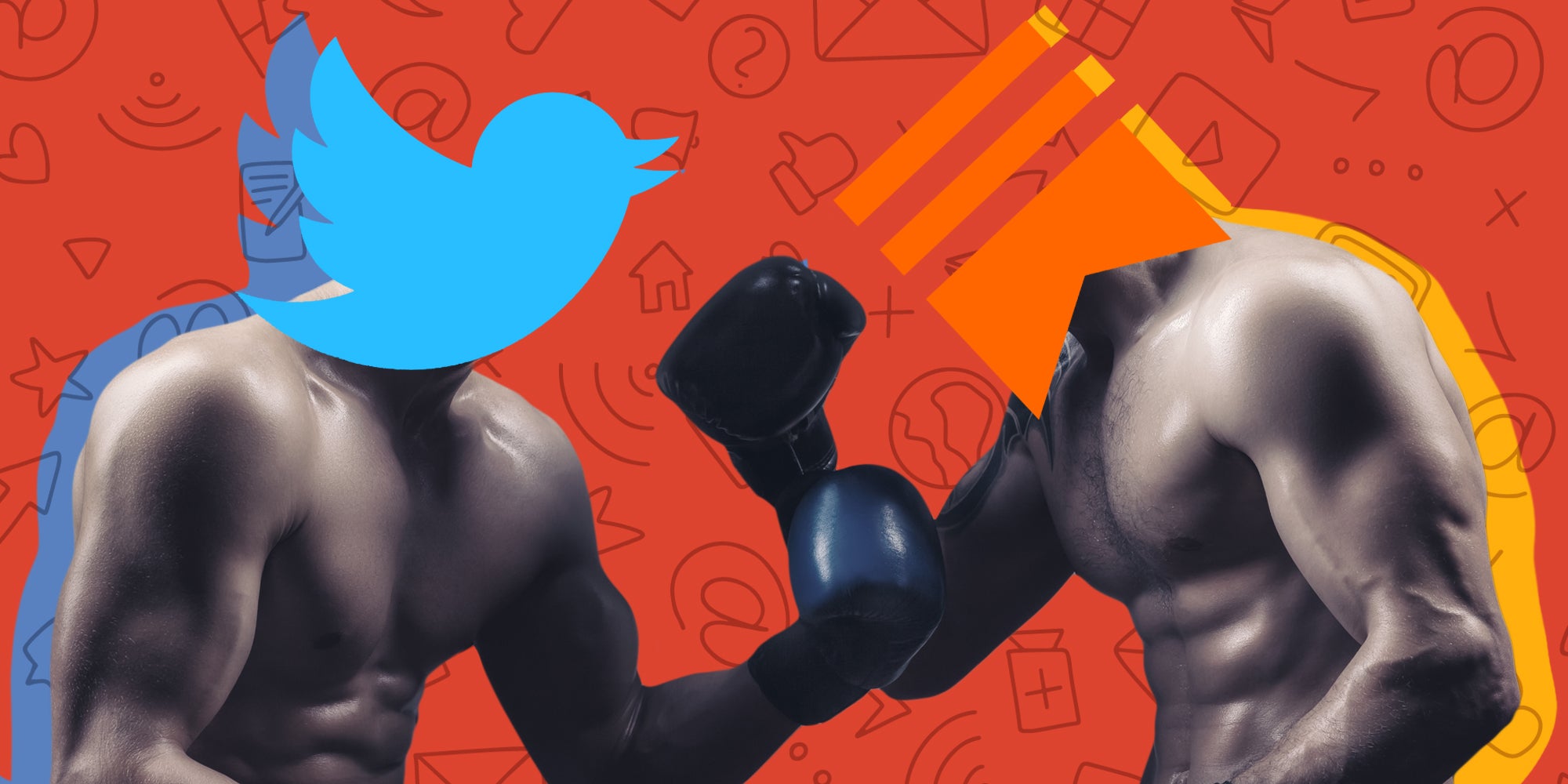
On April 7, Substack writers sharing their work on Twitter started noticing that they were not able to embed Substack links when creating a post on Twitter. They also noticed they were unable to like, retweet, pin, or reply to tweets that included a link to Substack. On April 8, Twitter users then noticed search results for “Substack” were replaced with results for “newsletters.”
All limitations to tweets including Substack content appear to be resolved as of April 11. So, was this a technical difficulty? Apparently, not quite.
Creators speculated that the backlash was due to Substack’s announcement of a new feature called Substack Notes on April 5. Substack Notes brings a social media feed with tweet-like short-form posts to the newsletter outlet.
Shots (mildly) fired
Social media users sure think that Musk feels threatened by Substack Notes, and Substack’s founders said in a blog post that Twitter’s move to restrict Substack-related content is “a reminder of why cracks are starting to show in the internet’s legacy business models.”
One of the first users to notice the block was writer Matt Taibbi, who tweeted on April 7 about his experience. “When I asked why, I was told it’s a dispute over the new Substack Notes platform. … Since sharing links to my articles is a primary reason I come to this platform, I was alarmed and asked what was going on,” he said.
Taibbi speaking out against the Elon-controlled platform was notable; he is most well-known as being the first author and driving force behind the “Twitter Files,” an intended expose on Twitter’s former leadership fueled by documentation allegedly provided by Musk. However, Musk and Taibbi no longer seem to be on good terms since Taibbi spoke out about the Substack drama.
Elon Musk responded on April 8 to the accusations in a Twitter thread, saying that Taibbi’s statement was false and that Substack links were never blocked.
“Substack was trying to download a massive portion of the Twitter database to bootstrap their Twitter clone, so their IP address is obviously untrusted.” He also noted that Matt “is/was” an employee of Substack. Substack CEO Chris Best clarified in a Substack Notes post that Taibbi “is not and has never been an employee of Substack.”
He went on to delete multiple of his tweets on the thread, aside from his original response.
For example, on April 10, Musk posted and then deleted a screenshot of a private message conversation between himself and Taibbi. The messages did not reveal anything revolutionary about Taibbi, only alleging that Taibbi misspoke by saying he was “employed” by Substack; he was paid through subscribers and was one of the first writers to use Substack Pro, which offered creators upfront payment for a year of writing in exchange for 85% of their subscription revenue.
The screenshots did, however, appear to reference that Taibbi believed his tweets were being deleted by Twitter in response to his involvement with Substack, which Musk said in the messages “shouldn’t be happening” and he would “fix.”
Musk alienates independent journalists
That Musk has gone so far out of his way to publicly criticize Taibbi, who many speculate released the Twitter Files with Musk’s blessing, is striking. For someone who claims to be a champion of free speech, Musk has now alienated one of his few remaining allies in the field of independent journalism, which relies entirely on subscription-based monetization.
Despite Musk’s claims that Twitter did not censor Substack posts, Substack writers are not convinced that malicious intent was not afoot. Jessica Valenti, a writer and reproductive rights advocate who has a Substack called Abortion Every Day noted she was not getting the kind of traffic she is used to receiving.
“So apparently Twitter has banned any interactions with tweets that have substack links so I don’t know how much longer I’ll be here,” Valenti wrote.
Substack addressed Twitter’s decision to prevent engagement with Substack content, stating, “Writers deserve the freedom to share links to Substack or anywhere else. … Their livelihoods should not be tied to platforms where they don’t own their relationship with their audience, and where the rules can change on a whim.”
Columbia University professor Zeynep Tufekci also tweeted about the Substack mystery, saying, “For real. Searching for the word substack on Twitter returns ‘newsletter.’ What’s next to be hardcoded? Search for Elon returns ‘the most amazing funniest guy ever?’”
Journalist Noah Berlatsky wrote about the whole kerfuffle on his Substack, asserting that the whole censorship endeavor was evidence of Elon Musk’s fundamental confusion regarding Twitter’s function.
“The attack on Substack is especially bizarre because Twitter and Substack aren’t actually competitors. They’re complementary services. And that shows how thoroughly Musk doesn’t understand his own business,” he wrote.
Many creators noted this change would make the Twitter landscape more difficult for creators attempting to work cross-platform. Writer Dan Pfeiffer observed that Twitter’s blockages towards Substack are “a big deal for independent writers trying to build an audience.”
Creators who write about Twitter in their Substack posts also could face problems if this kind of block continues, preventing them from sharing their work on an app they are analyzing and providing commentary on.
While it appears that the embedding problems are no longer, this experience has further soured creators on imagining any continued future on Twitter, and perhaps it’s even driven more folks over to Substack.
Update 9:55am CT, April 12: This article was updated to reflect clarifying information regarding Substack’s paid subscriber tiering.




